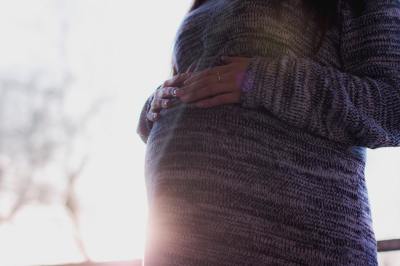Univ. of Pittsburgh bioethics prof blurs line between miscarriage, abortion

In a forthcoming Vanderbilt Law Review article, “Abortion, Pregnancy Loss, & Subjective Fetal Personhood,” University of Pittsburgh bioethics faculty member Greer Donley and co-author Jill Wieber Lens seek to normalize all pregnancy outcomes by attempting to blur the lines between the involuntary death of an unborn child and the intentional ending of a baby’s life.
To resolve obvious differences between miscarriage and abortion, the authors advocate for “subjective, relational fetal value” that relies on the mother’s sense of attachment as opposed to recognizing an objective understanding of personhood prior to birth. They assert the importance of affirming a woman’s sorrow post-abortion while also pushing for the source of her regret to be denied rights.
Donley and Wieber Lens reject legal personhood recognition and protection of early developing human beings. They argue against state criminal laws on fetal homicide and wrongful death claims, asserting that the rights of the mother are ultimately negated. However, by favoring civil tort law — where fetal worth depends entirely on the mother’s valuing — they disavow any individual rights of the child.
In addition to minimizing the grief of parents who suffer unexpected pregnancy loss and disregarding the inherent sacredness of unborn babies under the law, the authors ignore the latest biological data on fetal pain. They claim that the “scientific consensus” holds that a fetus cannot feel pain until “around 29 weeks.”
In reality, there is far from widespread agreement within the scientific community that pain goes unnoticed by babies until the third trimester of pregnancy. A 2020 study in the Journal of Medical Ethics found that neuroscience cannot rule out the possibility of fetal pain before 24 weeks, and pain may be experienced as early as 12 weeks.
Furthermore, researchers in a 2021 study observed that a baby at 23 weeks’ gestation grimaced when pricked with an anesthetic needle prior to undergoing heart surgery from inside the womb. Providing fetal anesthesia in the second trimester is now considered routine medical care.
Despite being off base on fetal rights and pain, Donley is considered "a national expert on reproductive healthcare and the law,” according to her biography for the University of Pittsburgh’s law school. Her thoughts on abortion are frequently sought after by liberal-minded media outlets including NPR, Politico, The New York Times, and The Washington Post.
By Donley's logic, the only value of unwanted lives in the womb is their worth as commodities in scientific research. Before arriving at the University of Pittsburgh, she was a fellow in the Department of Bioethics at the National Institutes of Health. The NIH is overseen by the Department of Health and Human Services, which has provided millions of dollars in federal funding for Pitt’s tissue bank to become a national hub for fetal body parts.
The NIH came under scrutiny earlier this year for accepting a flawed report paid for by the university and conducted by an alumnus as evidence that fetal organ harvesting had not taken place after disturbing information was revealed in grant applications showing potential violations of federal law. The agency received further backlash after agreeing to set up a meeting with Pitt’s Associate Senior Vice Chancellor for Science Strategy and Planning, Dr. Jeremy Berg, to discuss ways to combat criticisms of the research.
In response to these actions, concerned lawmakers sent a letter in May to HHS requesting a thorough and unbiased investigation of Pitt. Inspector General Christi Grimm assigned a special agent to the case in June and has committed to “follow up accordingly” with Congressional members.
Ignoring the ongoing scrutiny, Donley was among 600 university faculty members and students who submitted a letter in July to the executive leadership of Pitt’s affiliated medical center, UPMC, urging that the members publicly affirm the importance of abortion care following the Supreme Court decision to strike down Roe.
The letter includes the demand that the medical center commits to “no cooperation with law enforcement” without a court order if an abortion provider is facing prosecution for illegal activity. UPMC Magee-Womens Hospital abortions are the primary source of tissue for Pitt’s fetal experimentation projects.
Magee has a history of gruesome research practices that include reflexive movement studies on babies around 23 weeks’ gestation that were kept alive following abortions. One year prior to the Roe decision, a hospital nurse testified that she witnessed breathing babies being “packed in ice” and rushed to a laboratory for experimentation.
Ryan Navarro works as a mental health therapist in Pittsburgh, Pennsylvania. His articles on the topic of abortion have appeared in the Pittsburgh Post-Gazette, The Philadelphia Inquirer, The Federalist, National Review Online, and CNS News.





















